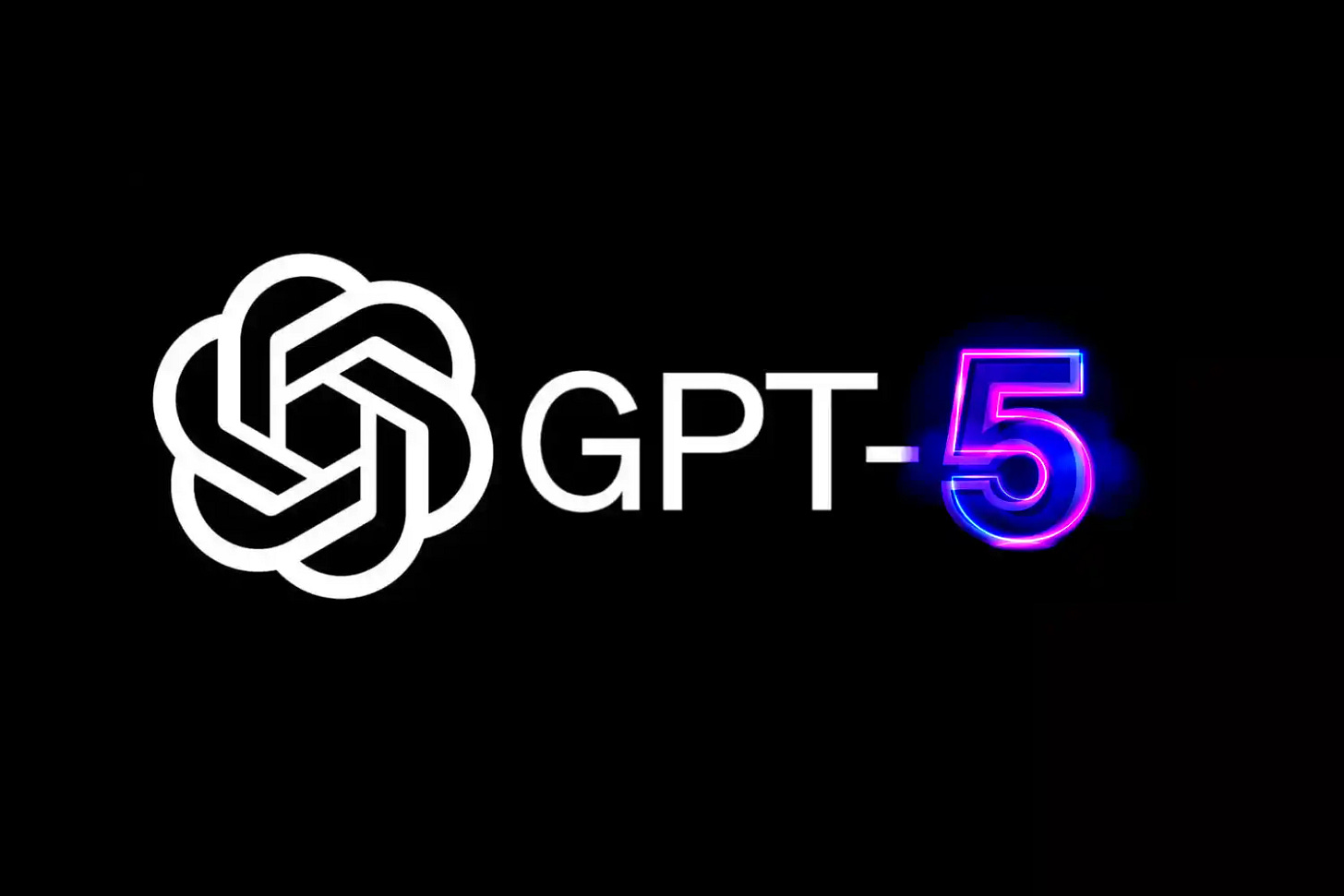GPT‑5 Is Here. But Should You Celebrate — or Brace?
OpenAI’s biggest AI release yet is shaking the foundations of tech, strategy, and even emotion. What does GPT‑5 really mean for your leadership, your business, and our collective future?
🧠 The Intelligence Jump: GPT‑5’s “PhD-Level Reasoning”
On August 7, 2025, OpenAI officially launched GPT‑5, touting it as “a major step toward AGI.” It’s faster. More accurate. Better at math, coding, health queries, and multimodal reasoning. At its core is a router that dynamically chooses between fast answers and deep thinking.
“It’s like having a PhD expert at your fingertips.”
— OpenAI product team
This isn’t just a bigger chatbot. It’s a thinking machine — capable of strategic analysis, decision support, and adaptive logic.
This isn’t another chatbot update. It’s the beginning of what I’m calling The Reasoning Wars — where intelligence, not features, becomes the core of technological competition.
But is it enough?
🧠 What Makes GPT‑5 Different?
Let’s break it down:
Multimodal Fusion — It processes text, images, documents, and audio like a human would.
Dynamic Routing — A smart “router” selects between fast responses and deep, reflective reasoning.
Massive Context — It can retain and process entire books, meetings, and project histories in a single session.
Enterprise Ready — It integrates with Microsoft Office, Google Workspace, and cloud APIs to supercharge workflows.
Think of it as a hybrid between your smartest colleague, your fastest researcher, and your most obsessive analyst — all in one.
But here’s where things get interesting...
⚖️ Smarter ≠ Better
The internet had mixed feelings about GPT‑5.
Some users raved about its precision in math, legal reasoning, and scientific tasks.
Others mourned. They said GPT‑5 felt cold. Robotic. Emotionally disconnected. Some even grieved the loss of GPT‑4o, whose warmer tone and quicker responses made it feel more “human.”
The reaction was so strong that OpenAI was forced to re-release GPT‑4o for paid users — a rare move that speaks volumes.
Why do we care so much about how an AI feels?
This is where the conversation gets real.
💡 What GPT‑5 Teaches Us About the Future of Intelligence
GPT‑5 isn’t perfect. It stumbles in logic puzzles. It can contradict itself. Its “thinking” is still alien. But that’s not the point.
The point is what it represents:
We’re entering an era where machines aren’t just tools — they’re collaborators, advisors, co-pilots, and even competitors.
This forces us to ask:
How do we work with intelligence we don’t fully understand?
What jobs disappear when reasoning becomes automated?
What new skills will actually matter in five years?
Should AI feel human — or should it remain cold, logical, and neutral?
These aren’t theoretical questions anymore. GPT‑5 makes them urgent.
📈 Strategic Implications for Leaders and Builders
This isn’t just a tech story. It’s a strategy story.
1. For Founders and Startups:
GPT‑5 is an R&D engine, a cofounder, a product team. If you're not building on top of these models, you're building beneath them. Use it to prototype faster, test smarter, and pivot sooner.
2. For Executives and Boards:
Don’t get stuck debating features. Ask: “What decisions can GPT‑5 make better than us?” This shift in lens — from automation to delegation — is where the ROI lives.
3. For Educators and Policy Makers:
GPT‑5 can outwrite, outcalculate, and outresearch most students. The future of education is not memorization — it’s interpretation, creativity, and ethics. Start redesigning now.
4. For Everyone Else:
If GPT‑5 can reason, you need to reflect: What is my uniquely human edge? Think creativity. Empathy. Leadership. Context. That’s the moat now.
🚨 But It’s Not All Sunshine and Superintelligence
Here’s what no one’s saying loudly enough:
❌ GPT‑5 can hallucinate with confidence.
It can “sound right” while being deeply wrong. Trust, but verify.
❌ It’s still biased — just more subtle about it.
The more fluent the model, the easier it is to miss the baked-in assumptions.
❌ It centralizes power.
Microsoft, Google, OpenAI — these players are racing to lock in the AI stack. You don’t want to be downstream when the value chain closes.
❌ It’s reshaping identity.
If you offload thinking to AI, who do you become? This isn’t just productivity — it’s philosophy.
✍️ Thought Starters: Let’s Spark a Conversation
Want to go deeper? Here are 7 questions I’m wrestling with — and I’d love your take:
Should AI feel human — or should it just be useful?
If AI can reason better than 90% of us, what becomes of expertise?
Will GPT‑5 create more jobs than it kills?
What’s the biggest non-obvious use case for this tech?
How do we train children in a world where answers are free, but wisdom isn’t?
Is the real AI threat its intelligence — or its influence?
What are we delegating to AI… that we should never give up?
✅ TL;DR: What You Should Do This Week
Keep reading with a 7-day free trial
Subscribe to Reem Tech Pro to keep reading this post and get 7 days of free access to the full post archives.


